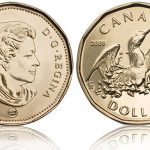The Aussie dollar retreated from the highest level in five months against its US counterpart on Friday, but headed for the longest weekly run of gains since August 2012. The kiwi, as the New Zealand dollar is best known, also pulled back from the strongest level in 2-1/2 years against the greenback, as demand for the South-Pacific currencies was damped by a slump in Asian and European equities.
AUD/USD hit a session low at 0.9364 at 01:15 GMT, subsequently the pair consolidated at 0.9392, losing 0.23% for the day. Support was likely to be received at April 9th low, 0.9336, while resistance was to be encountered at November 8th high, 0.9480. The pair is up 1.1 this week, heading for a fourth straight weekly advance, the best run since the week ended August 5th 2012.
The Aussie and the kiwi declined against the greenback after a slump in Asian and European equities curbed demand for higher-yielding currencies.
The Australian currency declined for the first time in four days after the MSCI Asia Pacific Index of equities plunged 1.1 percent and the Stoxx Europe 600 Index dropped 0.9 percent.
“The Aussie and kiwi are lower mainly because the equity markets have fallen out of bed,” said Imre Speizer, a market strategist at Westpac Banking Corp. in Auckland, cited by Bloomberg. “It’s a classic risk-aversion theme.”
On Wednesday, the Aussie dollar was supported after data by the nation’s Statistics Bureau showed today that home-loan approvals rose 2.3% in February from a month earlier, capping the biggest advance since September. Analysts had predicted a 1.5% increase, after the number of mortgage approvals remained unchanged in January.
Also fanning positive sentiment, a gauge of carry trades jumped to the highest in almost 20 months, after volatility dropped to the weakest in seven years on April 9, boosting returns from holding higher yielding currencies, including the Aussie and the kiwi.
In addition, Westpack Banking Corp. reported the results of its monthly consumer confidence survey, showing investors’ confidence in Australia rose for the first time since November last year, coming in 0.3% higher in April from a month ago, when the index registered a 0.7% drop.
Meanwhile, in the United States, the annualized index of producer prices (PPI) probably rose to 1.1% in March, according to the median estimate by experts, from 0.9% in February. This index reflects the change in prices of over 8 000 products, sold by manufacturers during the respective period.
Nation’s annualized core PPI, which excludes prices of volatile categories such as food and energy, probably remained steady at 1.1% in March. This indicator is quite sensitive to changes in aggregate demand, thus, it can be used as a leading indicator for economy.
Elsewhere, NZD/USD hit a session high at 0.8683 at 08:05 GMT, after which the pair consolidated to trade little changed at 0.8681. Support was likely to be received at April 8th low, 0.8606, while resistance was to be met at April 10th high, 0.8746, also the pairs strongest since August 2011.





